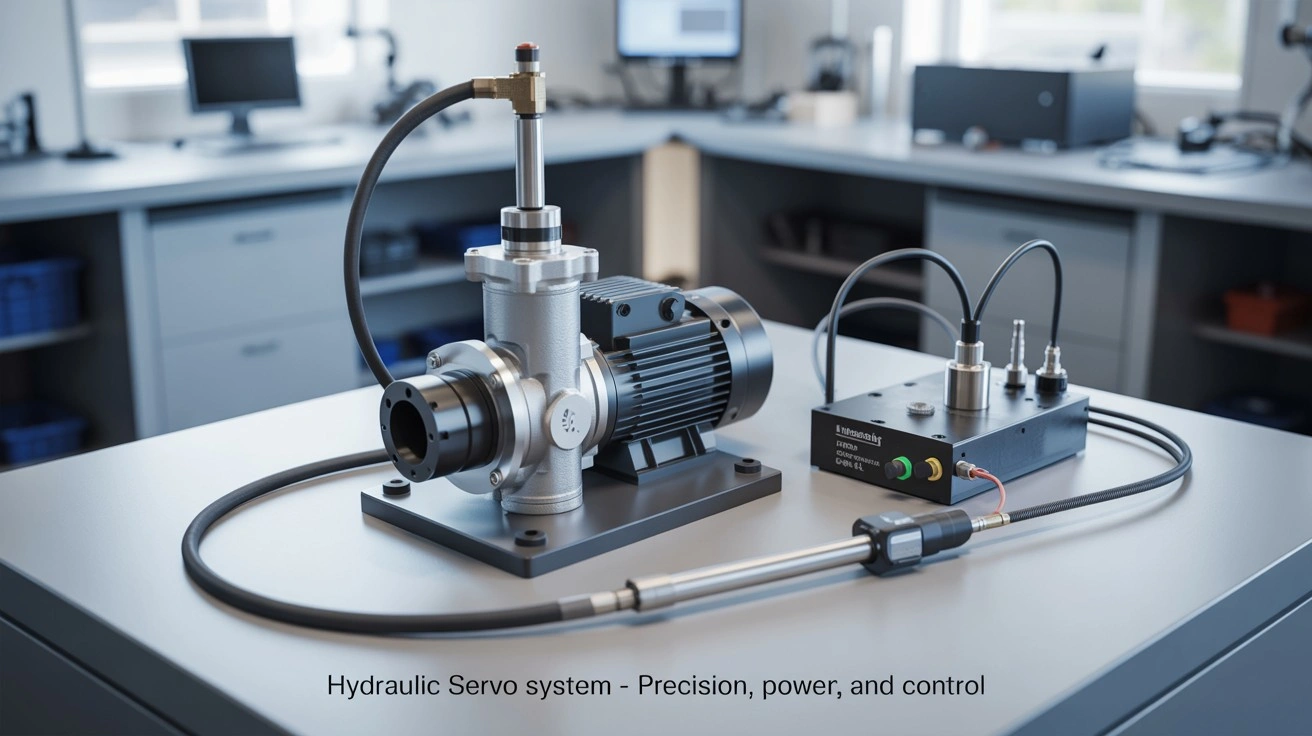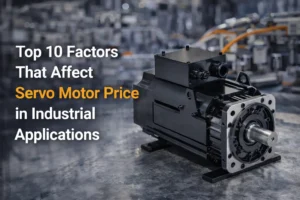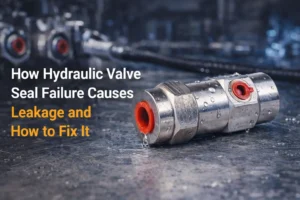Selecting the right electric hydraulic valve is critical for ensuring efficiency, safety, and long-term reliability in any hydraulic system. Whether you work in manufacturing, construction, agriculture, or the energy sector, the correct valve ensures precise control of hydraulic flow and pressure, preventing costly downtime, inefficiency, and premature equipment failure.
The market offers a wide range of options, from basic designs to highly specialized systems. Given vague knowledge of specifications, features, and compatibility factors, purchasers can end up buying an inaccurate product, with performance deficiencies or highly priced replacements. This guide will walk you through how electric hydraulic valves work, the different types available, key specifications to consider, common mistakes to avoid, and tips for maintenance and supplier selection.
How Does an Electric Hydraulic Valve Work?
Now that you know how an electric hydraulic valve works, it is time to select the right model. In other words, this is an electric signal-controlled valve that uses the signal to actuate hydraulic fluid within the system. When current passes through a solenoid, it energizes the solenoid by moving a spool or poppet inside the valve body, and opening or closing flow paths. Operators can accurately control direction, flow rate, or pressure, which is a requirement in most modern automated systems.
The electric hydraulic valve body is a housing that contains all the working elements. The design of the valve body will also influence its durability, heat dissipation, and ease of service. The valve is made from high-quality materials, such as hardened steel or an applicable alloy, ensuring it can operate at high pressures without degradation throughout its full cycle of operation.
Key Electric Hydraulic Valve Specifications to Check Before Buying
When evaluating a valve, review the following electric hydraulic valve specifications:
| Specification | Why It Matters |
| Max Working Pressure | Prevents system overload and ensures safe operation. |
| Flow Rating (L/min or GPM) | Determines if the valve can handle the required system flow without performance loss. |
| Response Time | Critical for high-speed automation — faster response means better precision. |
| Operating Temperature Range | Ensures reliability in your environment. |
| Duty Cycle | Indicates how long the solenoid can remain energized before overheating. |
| Voltage & Current Requirements | Must match your control system (common: 12V, 24V, 110V). |
Types of Electric Hydraulic Valves & Their Applications
Selecting the right electric hydraulic valve depends on your application’s control needs:
Directional Control Valves: Guide hydraulic fluid to specific actuators or return lines, controlling the direction of motion in equipment such as cranes, loaders, and automated arms.
Pressure Control Valves: Maintain system pressure within safe limits, protecting components from overload. Common in presses, injection molding machines, and lifting systems.
Flow Control Valves: Adjust hydraulic fluid pump speed to regulate actuator movement, ensuring smooth operation in conveyors, agricultural machinery, and precision manufacturing.
Matching the valve type to your system’s requirements ensures efficiency, safety, and optimal performance, while preventing premature wear and costly downtime.
Key Specifications to Check Before Buying
Understanding technical specifications will be the most important factor in selecting the correct model. Here are some of the most salient points to consider:
Max Working Pressure: The highest working pressure.
Flow Rating: (L/min or GPM): This is the maximum amount of hydraulic fluid that can flow through the valve without degradation of valve performance.
Response Time: The time it takes for the valve to open or close after receiving the electrical signal.
Temp Range: Reliable operation within your environmental conditions.
Duty Cycle: Indicates the maximum time the valve can be turned on before it reaches an excessively high temperature.
Being familiar with these aspects can help prevent the mixing of components and ensure the proper functioning of the system.
Common Mistakes in Selecting Hydraulic Valves
It is common for buyers to focus solely on the price of the electric hydraulic valves in their search. Cost does play a role, but using a low-quality or mismatched valve can increase overhead costs down the road because of downtime, repairs, or an earlier-than-expected replacement. Another error to avoid is overlooking electrical compatibility, which can cause solenoid burnout or erratic operation. Lastly, ignoring the maintenance will cause performance problems in the long term.
Maintenance Tips to Extend Valve Life
Even the best electric hydraulic valve needs to be regularly checked from time to time to perform well. Key maintenance tasks include:
- Checking for leaks from the valve body.
- Clean the electrical contacts to prevent signal loss.
- Keep an eye out for irregularities in the pressure and flow measurements
- Following the manufacturer-recommended service intervals.
Apart from prolonging the system’s life, a properly maintained valve helps avoid a costly operational stop.
How to Choose the Right Valve for Your Industry
After you understand your needs, the next challenge is to locate a reliable supplier. Identify providers who can provide clarity on product specifications, warranty facilitation, and technical support. Check if the hydraulic pumps for sale has received the in-sector standard test. There are even suppliers that offer customization options tailored to the specific needs of certain unique applications, which can be very useful to industries that handle specialized products.
Bottom Line
The key to efficiency, safety, and reliability in hydraulic systems does not merely stem from choosing an electric hydraulic valve, but rather, selecting the right part. Learn how it works, interpret specifications correctly, and select features for your application, and you will make your investment in gear go a long way.
For high-grade, reliable valves with proven performance, THM Huade has an electric hydraulic valve body that fits the needs of virtually any industrial application. Our electric hydraulic valve solutions are ideal for businesses that require both quality and performance, providing precision engineering, optimal material strength, and after-sales support like no other.
FAQs
Q2: How do I size an electric hydraulic valve?
To size a valve correctly, assess your system’s maximum operating pressure, required flow rate, and electrical specifications. Select a valve with ratings that equal or exceed these requirements to ensure reliability, safety, and optimal performance under operating conditions.
Q3: What are the main components of an electric hydraulic valve?
The key components include the valve body, spool or poppet for directing fluid, high-quality seals for leak prevention, and an electrically actuated solenoid assembly that enables precise control of hydraulic flow paths within the system.
Q4: Where can I buy high-quality electric hydraulic valves?
High-quality valves are available from trusted industrial suppliers offering clear technical specifications, warranty coverage, and technical support. For proven durability and performance, companies like THM Huade supply precision-engineered valves designed for demanding applications across multiple industries worldwide.



